LE GAZ NATUREL LIQUÉFIÉ (ENCORE) AIME L'ÉCOBLANCHIMENT
15.10.2025
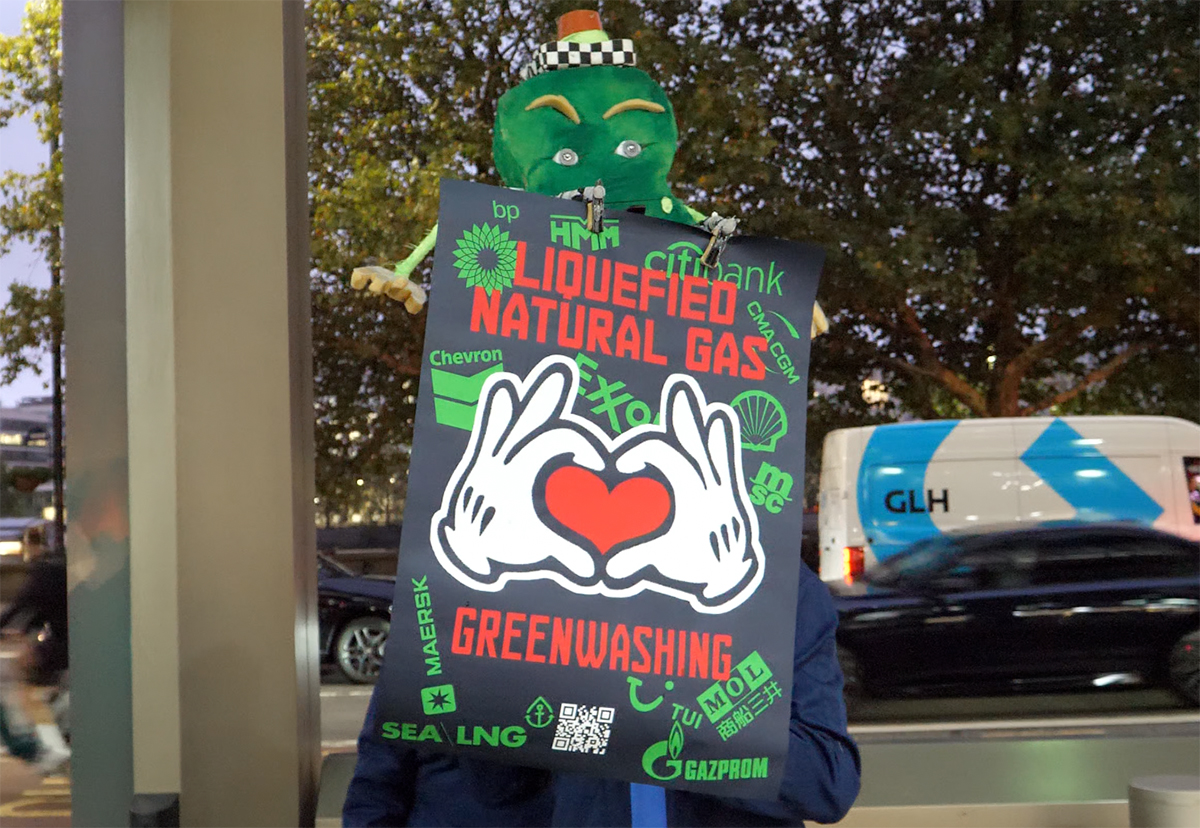
⬆️ Scrubby gets ready to paste posters to the windows of the UN IMO.
—
The UN International Maritime Organisation (IMO) 2nd Extraordinary Session is meeting this week. It is a meeting where IMO delegates and Member States will be finalising plans to regulate shipping pollution.
To mark this special occasion we thought we’d remind them that not all shipping emissions are treated equally. In fact some might not be considered at all. Last week Shell announced plans to extract more liquefied natural gas – the fuel the oil, gas and shipping industry is lobbying to be exempt from IMO shipping pollution regulations.
⬆️ Window redecoration is go!
—

⬆️ Why are there posters on the window? It’s to remind UN IMO Member States and delegates that all fossil fuels should be treated equally. After all ‘Liquefied Natural Gas ❤️ Greenwashing’ only when LNG escapes planned shipping pollution regulations.
—

⬆️ Here comes Scrubby with another poster.
—
Le sort de l'océan dépend de nous tous.
Nos interventions dépendent de votre soutien.
At 18:00hrs, while delegates were enjoying canapés and sipping wine, a ‘Scrubby the greenwashing Sponge’ appeared at the window of their reception holding a poster. A poster containing the graphic message ‘LIQUEFIED NATURAL GAS LOVES GREENWASHING’. The precarious Scrubby, operating on a long 4 metre pole, pasted the poster onto the window, giving everyone inside the opportunity to applaud its wonderful skills. It then bobbed down to the ground to pick up another poster to repeat the process until the IMO windows were obscured.
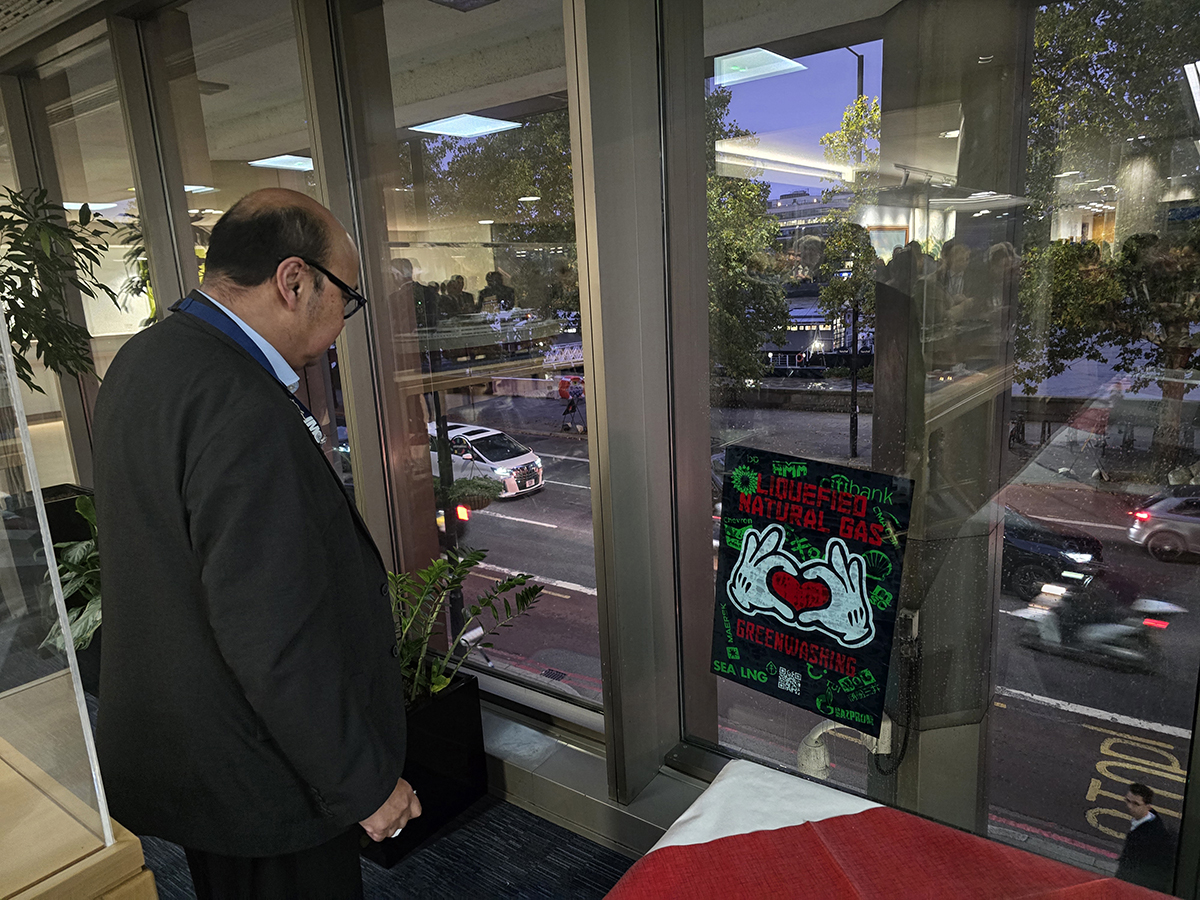
⬆️ Time to take a closer look at who has been greenwashing LNG. You don’t have to look far, the membership of SEA/LNG provides a full list of scoundrels. Oil and Gas can’t be a part of ‘The Future of Shipping’. If the UN IMO is serious about reducing pollution shipping must stop using fossil fuels.
—
Scrubby represents the blatant greenwashing that will give LNG a free pass to avoid any MEPC plans to include LNG in shipping pollution regulations / tax levies – making LNG the go to fossil fuel for shipping (while still accelerating dangerous emissions and obscene profits for the fossil fuel and shipping industries). ‘Scrubby the greenwashing Sponge’ was keen to make sure L'avenir du transport maritime au nom de l'Union européenne SEALNG.ORG was seen by all IMO Delegates and Member States.
After all Scrubby didn’t want its employers, the fossil fuel and shipping industries, to miss out on a chance to greenwash LNG ahead of the MEPC discussions on shipping fuel levies (which companies like CMA CGM et Exxon Mobil as well as classification societies like DNV et ABS hope LNG can avoid by selling itself as the ‘green’ fuel it certainly isn’t).
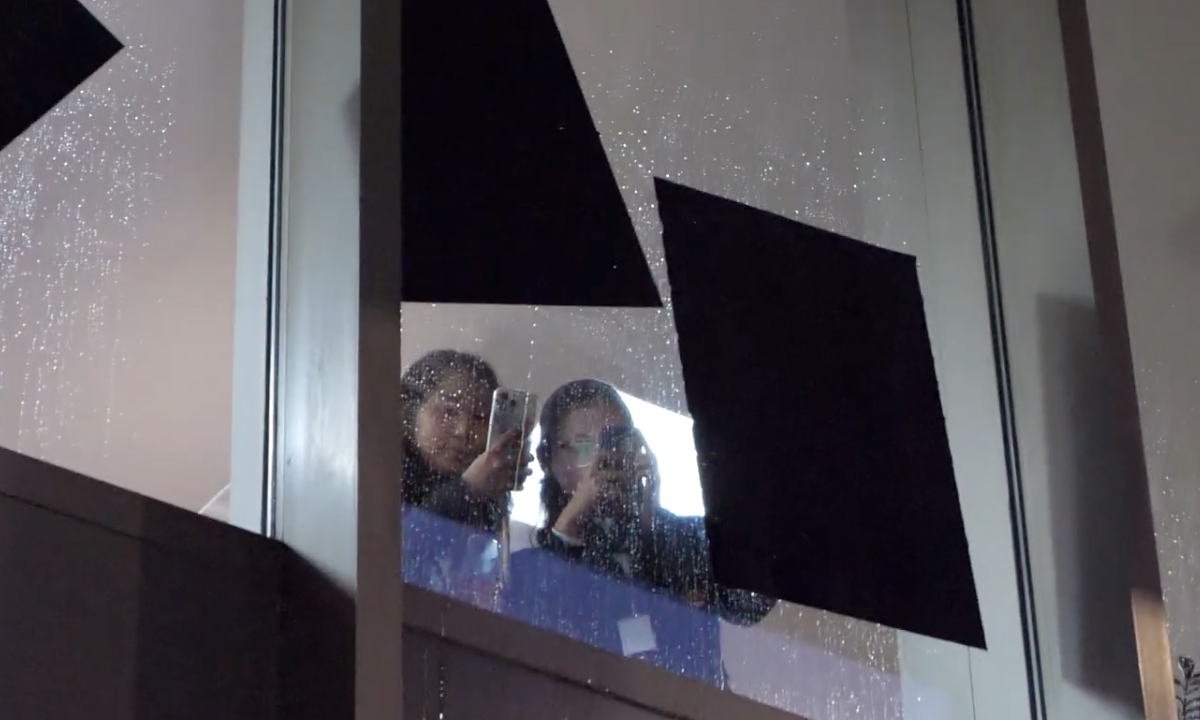
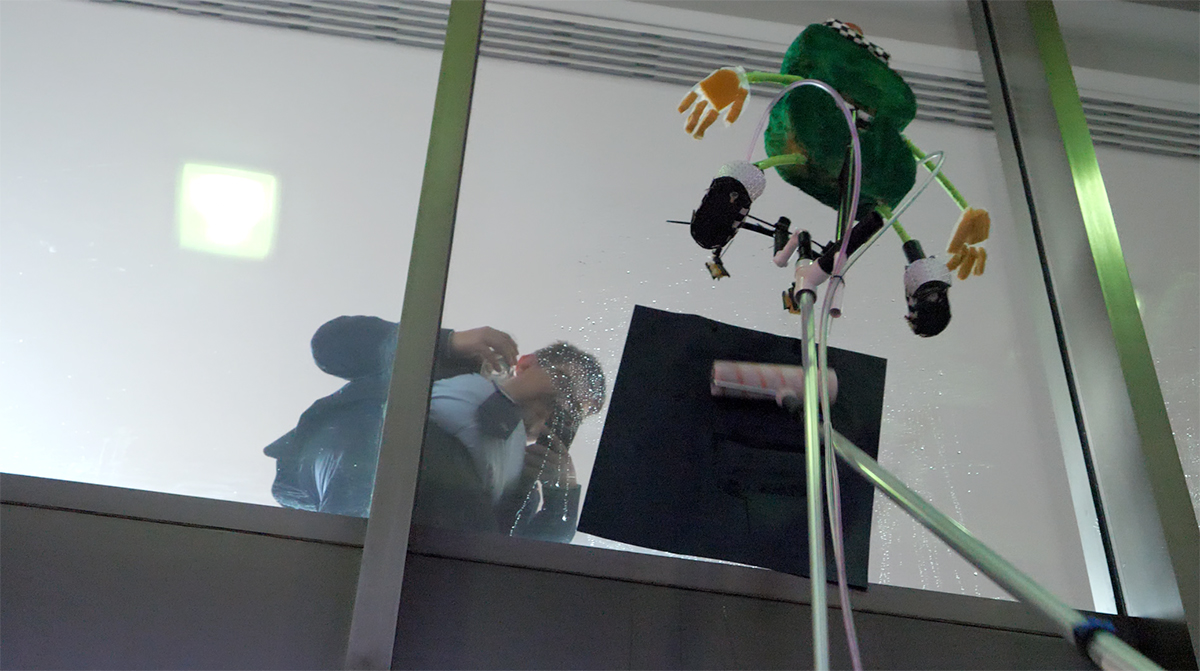
⬆️ Delegates take photos of the posters.
—
The performance celebrates the rampant puppetry at large in MEPC meetings. Meetings dominated by the interests of the shipping industry, an industry intent on cementing its romance with the oil and gas industry by adopting dirty LNG as its fuel of choice. This is despite recent research which has exposed the lies of industrial lobbying platforms like SEA/LNG. La recherche évaluée par des pairs reveals that LNG extracted and exported from the US is 33% more polluting than coal, vying for the title of most lethal of the fossil fuels. Methane leaks occur throughout the LNG extraction and supply process increasing mortality levels and causing health problems. And LNG extraction destroys land and coastal communities partout où une usine de GNL apparaît. Ces mêmes fuites se poursuivent à bord Navires fonctionnant au GNL, helping accelerate climate collapse and the collapse of our economies. To cover up this uncomfortable truth the industry trumpets Biométhane et e-méthane products that are only 6% of the EU market and even less worldwide (and both still leak methane throughout their supply chains and, in the case of biomethane, use up land resources and bump up food scarcity and prices). The industrial scale of LNG greenwashing has converted the UN IMO MEPC into a puppet for the oil and gas industry.

⬆️ “This is private land, please leave now!!!”
“I’ll try sir, but please be careful on the wet floor, it’s rather slippy.”
“Just leave, get off this land, you are committing soft trespass.”
“I will if you remove the barrier, my hip’s not so good and I can’t get over it…”
—
Liquefied Natural Gas (LNG) – les faits
Le GNL est un combustible fossile qui, lorsqu'il est extrait, transporté et brûlé en tant que combustible marin, laisse échapper du méthane dans l'atmosphère - un gaz dangereux pour le réchauffement de la planète, qui est plus que jamais d'actualité. 80 fois plus de réchauffement climatique in the short-term (20 years) than carbon dioxide.
Le Groupe d'experts intergouvernemental sur l'évolution du climat (GIEC) des Nations unies. identifié des réductions rapides des émissions de méthane comme l'une des principales priorités afin de limiter le réchauffement climatique à un niveau aussi proche que possible de 1,5°C. Le rapport du GIEC dernier rapport L'accent mis sur l'atténuation du changement climatique montre clairement que le gaz fossile sous forme de GNL n'est pas une solution pour la décarbonisation du transport maritime.
Contrairement à ce qu'exige la science du climat, les compagnies maritimes et portuaires ont fait marche arrière à toute vapeur, investir massivement dans le GNL fossile, alléguant que ce carburant réduira leur impact sur l'environnement et la pollution climatique. Plus de 785 nouveaux cargos sont actuellement commandés dans le monde, dont plus de 400 sont construits pour fonctionner avec du GNL fossile polluant.
Burning more fossil LNG onboard vessels is a disaster in the making for our planet. It would only increase methane emissions from ships, which already rose by 180% between 2016 and 2023, according to a recent International Council on Clean Transport (ICCT) report.
Les émissions de méthane diminuent également la qualité de l'air. En outre, l'augmentation de la demande de GNL, y compris dans le secteur maritime, a des conséquences négatives sur la terre ferme, telles que la pollution de l'eau potable, la réduction de la production agricole et l'augmentation des taux de mortalité prématurée.

⬆️ Regulating shipping pollution is hungry work, unfortunately the canapés didn’t find their way outdoors.
—
L'OMI doit adopter des réglementations strictes sur le méthane
Selon la GIEC (AR6)En effet, pour faire face à l'urgence climatique et à ses effets dévastateurs sur les populations, il faut s'attaquer d'urgence et à court terme aux émissions de méthane. Les partisans du GNL éclairent les décideurs politiques sur l'ampleur réelle des effets du GNL sur le climat et la santé, tout en mettant en péril un avenir viable sur cette planète.
L'Organisation maritime internationale (OMI) est l'organe des Nations unies chargé de réglementer le transport maritime international. Il n'existe actuellement aucune réglementation internationale spécifique concernant les émissions de méthane des navires. However, several opportunities exist to comprehensively integrate methane into the IMO’s regulatory framework during the Marine Environmental Protection Committee (MEPC82). If this doesn’t happen we propose a more drastic future for the IMO.
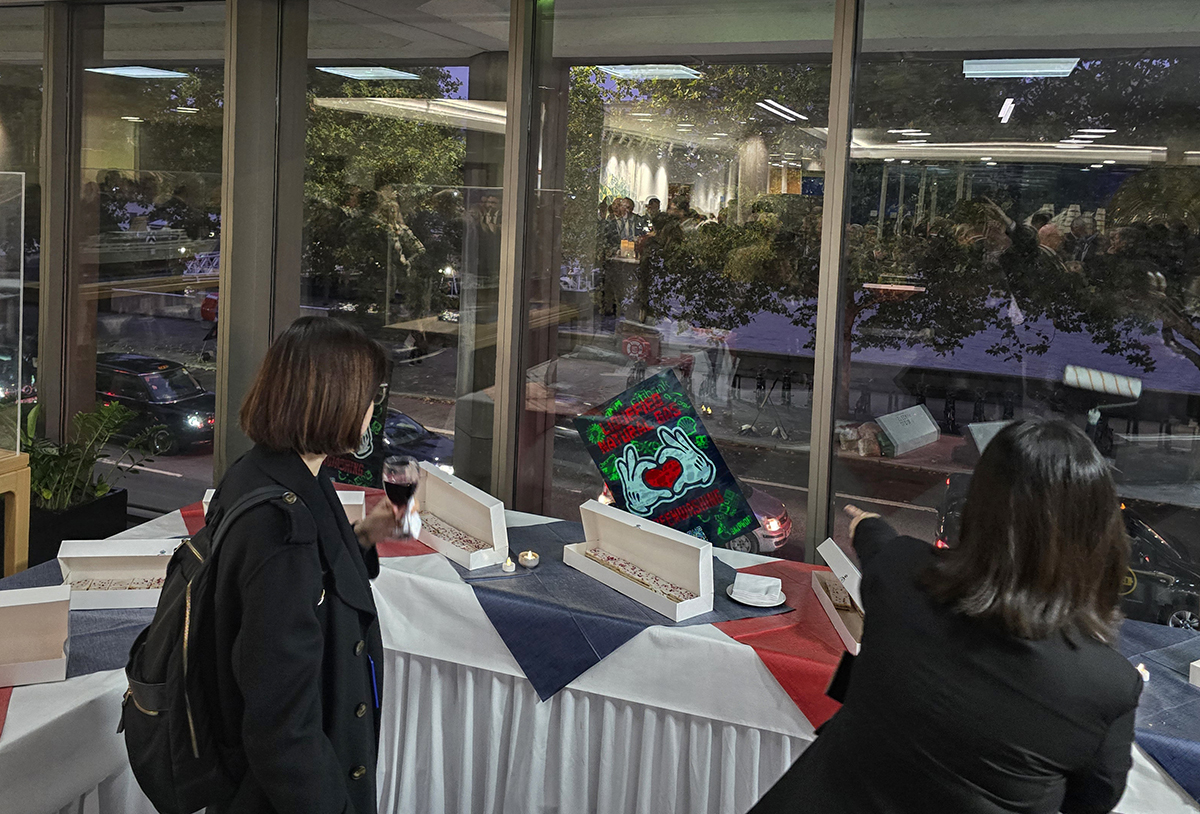
⬆️ “Look at that poster the puppet stuck to the window!”
“Does it mean we’re complicit in greenwashing?”
Yes is it does, and so is the UN IMO if it doesn’t regulate methane (the leaky byproduct of LNG) along with other fossil fuels.
—
Appel à l'action à l'OMI :
Le GNL est un combustible fossile qui a un impact négatif sur les personnes, l'environnement et le climat à chaque étape de son cycle de vie.
Nous demandons :
1. Les émissions de méthane sont considérées comme un gaz à effet de serre et sont incluses dans tout projet du MEPC visant à prélever une taxe carbone sur le transport maritime, pondérée par l'excès de capacité de forçage climatique du méthane fugitif.
2. The Member States of the IMO recognise LNG as a fossil fuel and stop being misled by the SEA LNG les lobbyistes, en les excluant de l'OMI.
3. The IMO to promote efficiency and the use of slow steaming, capacity reduction and les bateaux à voile et à propulsion électrique en encourageant l'adoption dans le secteur du transport maritime, en responsabilisant et en améliorant les compétences des travailleurs et en introduisant des itinéraires de transport maritime plus équitables.
Si l'OMI n'agit pas, Ocean Rebellion l'exige :
The UN must form a new, transparent, and representative body to govern the Ocean for the benefit of ALL life. This new body must have the restoration and replenishment of the Ocean on which all our lives depend as its only measure of success. It should replace corporate power with people power. And it should represent the many forms of marine life who actually make the ocean a home.
—
Photos by S. Staines.